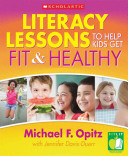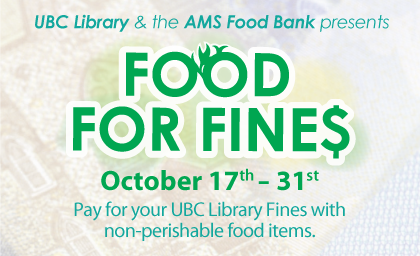Stay up to date on news, events and special features.
Laptops in the Classroom –A Classroom goes Digital
 MUNSTER, Ind. — Laura Norman used to ask her seventh-grade scientists to take out their textbooks and flip to Page Such-and-Such. Now, she tells them to take out their laptops.
MUNSTER, Ind. — Laura Norman used to ask her seventh-grade scientists to take out their textbooks and flip to Page Such-and-Such. Now, she tells them to take out their laptops.
The day all have seen coming — traditional textbooks being replaced by interactive computer programs — arrived this year in this traditional, well-regarded school district, complete with one naysaying parent getting reported to the police. Unlike the tentative, incremental steps of digital initiatives at many schools nationwide, Munster made an all-in leap in a few frenetic months — removing all math and science textbooks for its 2,600 students in grades 5 to 12, and providing a window into the hurdles and hiccups of such an overhaul.
The transformation, which cost $1.1 million for infrastructure, involved rewiring not just classrooms but also the mindset of students, teachers and parents. When teachers started hearing that “the server ate my homework,” they knew a new era had begun.
“The material we’re teaching is old but everything around it is brand-new,” said Pat Premetz, chairwoman of the math department at Wilbur Wright Middle School in Munster, who described the initiative as both “very overwhelming” and “the most exciting thing to happen in my 40 years of teaching.”
“This isn’t stressing out students,” Ms. Premetz added. “It’s stressing out teachers because of some of the technological problems, and parents who are wondering why their kids are on the computer so much.”
Munster is hardly the first district to go digital. Schools in Mooresville, N.C., for example, started moving away from printed textbooks four years ago, and now 90 percent of their curriculum is online. “It didn’t happen overnight for us — it was an incremental change,” said Mark Edwards, Mooresville’s superintendent of schools. “The competency is evolutional.”
THIS JUST IN: New Book @ Education Library
Books as bridges : using text to connect home and school learning / Jane Baskwill
 Based on research that shows that parents play a vital role in raising a reader, Books as Bridges offers an effective and efficient way to use touchstone texts, including children’s picture books, to help create a common reading experience for the class that can be extended to the home. This practical book introduces four guiding principles—predictable structures, nonfiction, comprehension, and imagination and language play—describing each principle in terms of a series of strategies, which are highlighted by their use with specific touchstone books, and supported by lists of related books to consider. (via Google Books)
Based on research that shows that parents play a vital role in raising a reader, Books as Bridges offers an effective and efficient way to use touchstone texts, including children’s picture books, to help create a common reading experience for the class that can be extended to the home. This practical book introduces four guiding principles—predictable structures, nonfiction, comprehension, and imagination and language play—describing each principle in terms of a series of strategies, which are highlighted by their use with specific touchstone books, and supported by lists of related books to consider. (via Google Books)
Click here to go directly to this item in the UBC Library Catalogue
THIS JUST IN: New Book @ Education Library
Literacy Lessons to Help Kids Get Fit & Healthy
 In this inspiring, breakthrough book, nationally respected educator and fitness expert Michael F. Opitz together with veteran teacher Jennifer Davis-Duerr share their secrets for combining literacy-rich, ready-to-use lessons with easy-to-implement fitness exercises. You’ll discover how to weave fitness (physical, nutritional, social, and emotional) into your existing classroom literacy routines—guided reading, read-aloud, independent reading, readers and writers workshop —for the invigorating workout today’s students urgently need. For use with Grades 1–6. via Google Books
In this inspiring, breakthrough book, nationally respected educator and fitness expert Michael F. Opitz together with veteran teacher Jennifer Davis-Duerr share their secrets for combining literacy-rich, ready-to-use lessons with easy-to-implement fitness exercises. You’ll discover how to weave fitness (physical, nutritional, social, and emotional) into your existing classroom literacy routines—guided reading, read-aloud, independent reading, readers and writers workshop —for the invigorating workout today’s students urgently need. For use with Grades 1–6. via Google Books
Click here to go directly to this item in the UBC Library Catalogue
Should Chess Be Taught in School?
 The 120 elementary school children sat so quietly and intently that you might have assumed this was a mass detention period.
The 120 elementary school children sat so quietly and intently that you might have assumed this was a mass detention period.
But it was chess, not confinement, in an Oak Brook hotel ballroom on Columbus Day. And the lessons learned might assist school leaders everywhere, including those attempting a systemwide resuscitation for Rahm Emanuel, Chicago’s very disciplined, if impatient, mayor.
“My dream is to get in front of education decision makers and convince them to make chess part of the curriculum for K through second grade,” said Susan Polgar, the star of the show. “That’s when thinking patterns and habits are formed. It should be mandatory, like physical education.”
To read the rest of the New York Times article please click here
Food For Fines returns October 17 – 31
 For the ninth consecutive year, UBC Library and the Alma Mater Student Society of UBC are once again running their Food for Fines Campaign.
For the ninth consecutive year, UBC Library and the Alma Mater Student Society of UBC are once again running their Food for Fines Campaign.
Reduce your library fines by donating non-perishable food items. Each food item donated counts toward $2 in fines, up to a maximum of $30. Donated items will be distributed to the Greater Vancouver Food Bank and the AMS Food Bank. The program takes place from October 17 – 31 inclusive.
Help us raise exceed our goal of raising more than $5,000 in donations to helping those who need it the most in our communities. Review the list of most-needed items by the Food Banks. Find out more about this program by visiting the Food for Fines Facebook page or emailing the AMS Food Bank.
Donations received at UBC’s Okanagan campus will go to the UBC Okanagan Student Food Bank.
By Jessica Woolman on October 3, 2011 For original link click here